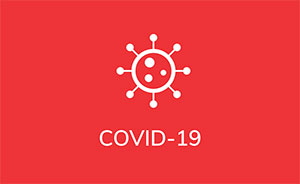Authored by Brian Koffman, MDCM (retired), MSEd
Bottom Line:
A three-week pause of BTK inhibitors was studied to see if it improved antibody response to COVID-19 booster vaccinations in CLL patients, but it did not.
Who Performed the Research and Where Was it Presented:
Dr. Cook and colleagues published in the prestigious general British medical journal, Lancet: A 3-week pause versus continued Bruton tyrosine kinase inhibitor use during COVID-19 vaccination in individuals with chronic lymphocytic leukaemia (IMPROVE trial): a randomised, open-label, superiority trial
Background:
BTK inhibitors (BTKi) block B-cell receptor (BCR) signaling, directly affecting antibody production and B-cell activation. This suppression leads to attenuated vaccine responses in CLL patients, who are already immunocompromised and respond poorly to vaccines. Research is needed to find ways to improve their protection. Observational studies have suggested that holding BTKi might improve response to some vaccines, but the data were weak and not prospective.
Methods and Participants:
- This was an open-label (not blinded), randomized two-arm trial in the United Kingdom for adult CLL patients taking a BTKi either front line or in a relapsed / refractory setting for at least twelve months.
- Half the patients were randomized to pause BTKi for three weeks, starting six days before their SARS-CoV-2 vaccination booster date. The other half continued with no interruption of the medication.
- The vaccines used were either the original BA.1 or original BA.4/5 bivalent mRNA vaccine (50 μg mRNA-1273 or 30 μg BNT162b2) or the 5 μg protein-based Vidprevtyn Beta (Sanofi Pasteur, Lyon, France). The bivalent Pfizer mRNA vaccine was used in 86% of the patients in both groups, with the rest receiving Moderna or Sanofi vaccines.
- Anti-spike antibody titers were measured three weeks after vaccination as the trial’s primary endpoint.
- The cellular response was a secondary endpoint at three weeks, specifically interferon gamma-producing T-cell responses.
Results:
- 99 individuals, of which 71 were male and 89 were white.
- The baseline characteristics of the “pause” and “continue” groups were well-matched.
- At three weeks after vaccination, the average anti-spike antibody titer was:
- 218·8 U/mL in the continue group.
- 153·4 U/mL in the pause group (this was not a statistical or likely clinically important difference).
- At twelve weeks after vaccination, the average anti-spike antibody titer was almost identical:
- 129 U/mL in the continue group.
- 130 U/mL in the pause group.
- The response rate was 33 (69%) of 48 participants who continued BTKi and 32 (68%) of 47 who paused BTKi therapy three weeks after the vaccine dose.
- Evidence of natural infection, measured by a detectable nucleocapsid antibody response, was also similar in both study groups. Nucleocapsid antibodies are only acquired by infection, not vaccination.
- Cellular immunity, as measured by interferon gamma-producing T-cell responses, showed no difference between the two groups.
- There was one death from COVID-19 in the twelve-week follow-up that occurred only two months after randomization in the pause group.
Conclusions and discussions:
A three-week pause in BTKi therapy did not improve the antibody response to a COVID-19 (SARS-CoV-2) booster vaccination at three or twelve weeks. Most patients had received four or more vaccines before entering the trial, leading the authors to question if non-responders who were never going to respond or seroconvert contributed to the lack of difference.
The trial once again highlights the heterogenicity of CLL patients, this time in how they respond to vaccines. Both study groups had similar response rates.
It also reminds us of the importance of randomized prospective trials in giving us clear answers and the difference between them and observational studies.
The bottom line is that CLL patients do not consistently or robustly respond to vaccinations. We need to continue to research how to improve immune responses and levels of protection against serious infections for this vulnerable population.
The source article from Lancet is accessible at A 3-week pause versus continued Bruton tyrosine kinase inhibitor use during COVID-19 vaccination in individuals with chronic lymphocytic leukaemia (IMPROVE trial): a randomised, open-label, superiority trial.



